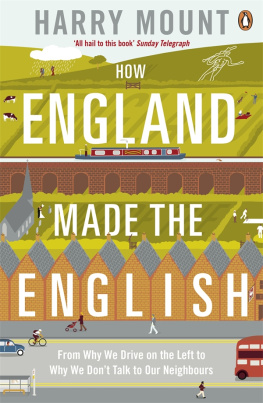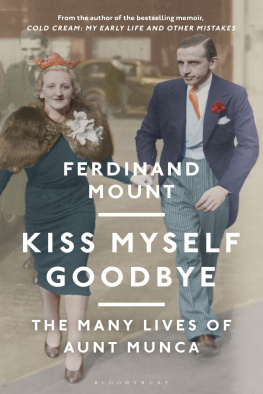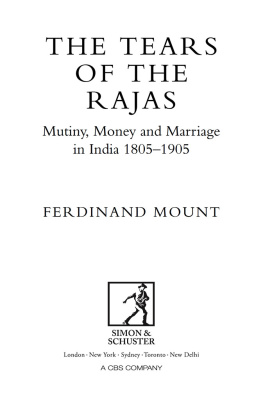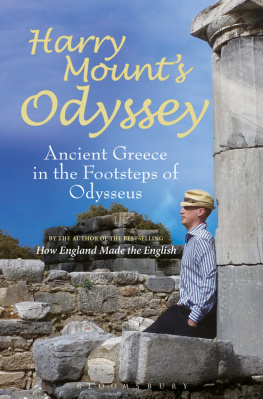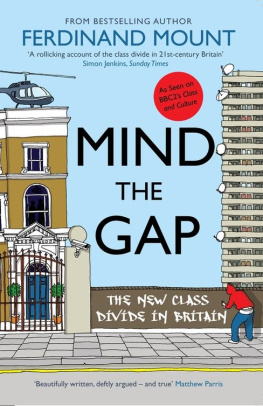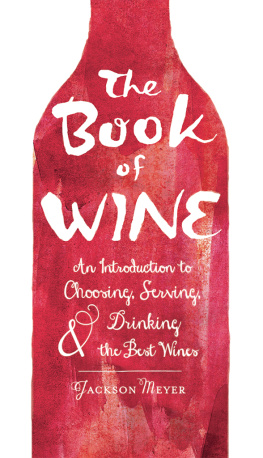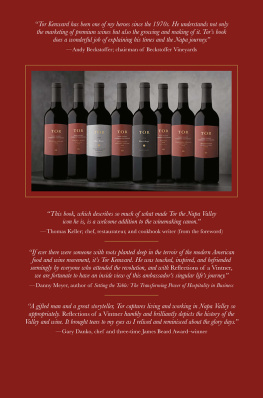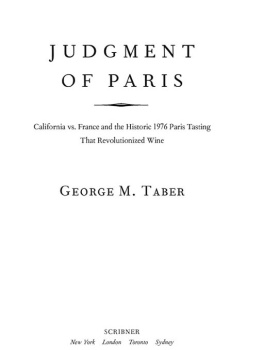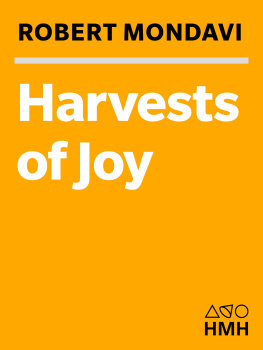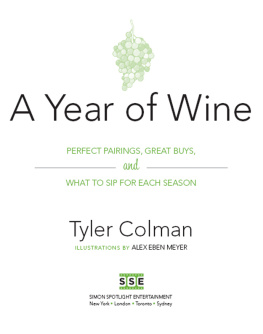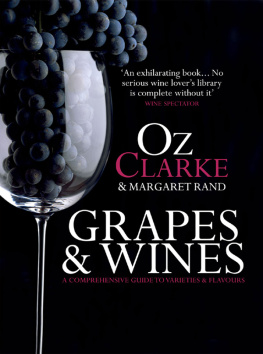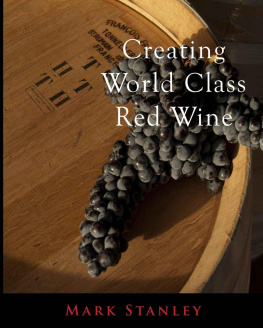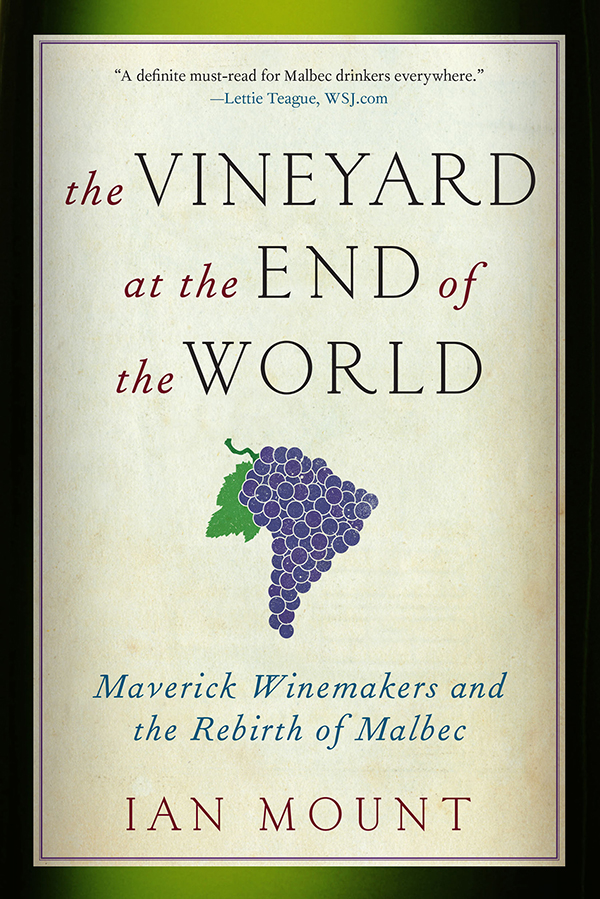
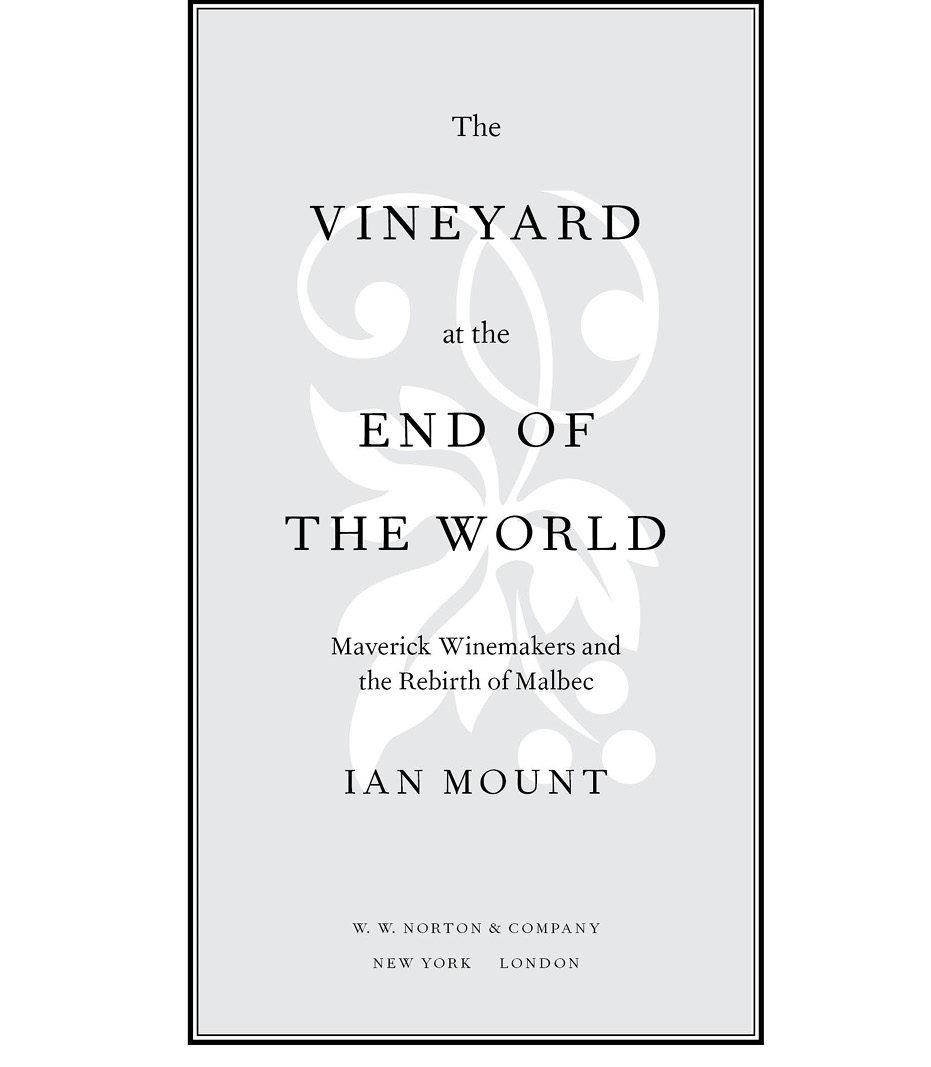
For Robert Henry Mount (19301995),
who always appreciated a good story,
and a good wine.
CONTENTS
PREFACE
The Vineyard at the End of the World tells the remarkable story of how an economically, geographically, and politically isolated country became one of the worlds great wine powers. The story is set in an era in which an increasingly broad part of humanity started buying wine, a beverage whose consumption had previously been limited to international elites and more humble natives of traditional wine cultures. Argentina had the luck to appear on the international scene just as this mass of neophyte drinkers was being seduced by the romance and historythe Tao that makes wine different from vodka or beer. But Argentinas success did not result from mere circumstance or luck; this nation on the far curve of the globe would not have enjoyed such success without its four centuries of winemaking experience, or without a series of political and economic events that, at the end of the twentieth century, brought it back into the international fold after decades as a deeply troubled state. This book travels on two rails then: wine and Argentina. Why does a simple drink of fermented grapes fascinate us so? And what is it about Argentina that inspired such captivating wines?
To illustrate those questions, Ill start with two anecdotes that brought me to this book.
During March 2008, in the middle of a new vineyard on the outskirts of Vista Flores, a tiny Argentine town in the Andes rain shadow, Brian Gillespie squatted next to a row of fragile young vines. Gillespie was grasping a sprig of tiny grapes that had just been handed to him, the first fruit from his vineyard. He rubbed his free hand over the smooth dome of his shaved pate. He was a bit choked up; his eyes were damp. It sounds cheesy, he said to me, but its like a dream beginning to come true. By day the creative director of a San Francisco marketing agency, Gillespie was on a month-long winemaking internship in Mendoza, where he and his wife had purchased 5 acresfor $125,000at a private vineyard development called the Vines of Mendoza.
I was intrigued that two thirty-something professionals like Gillespie and his wife were willing to invest such a tidy sum of money in a vineyard, especially one that they didnt expect to return a big profit: If we dont sell one bottle of wine, thats not the point. Were creating something and its something were doing together, Gillespie told me. Its like going to Vegas in a really big way. Im going to have a good time, and if it doesnt work out it was a great experience. I was even more intrigued to learn that two of the three founders of the Vines of Mendoza were American, that they had raised $3.4 million in seed capital, and that they had bought or optioned 1,500 acres for their turnkey vineyard project, in which armchair Mondavis buy parcels of land and pay the Vines of Mendoza an annual fee to care for the vineyard and make the wine. The two friendly, laid-back American founders were Michael Evans, a forty-six-year-old political campaign worker with straw-tinged hair and a farmers perpetual sunburn; and his friend David Garrett, forty-two, a six-foot four-inch serial entrepreneur with a prep-schoolers easy slouch. They had visited Argentina after John Kerrys loss in the 2004 presidential campaign left Evans out of a job, and they had fallen in love with the country and its wine. Neither they nor their investors were nave, and their buyers seemed to understand the risks. There was something in these mountain vineyards that impassioned people, I realized, and there was money to be made in that.
A year after Gillespie caressed his first grapes, I had a minor operation that demanded I spend a night in a Buenos Aires hospital. My room filled me with nostalgia for the Rockford Files 1970s of my youth: chipped iron bed, flickering fluorescent ceiling lamp, and floor tiled in a gray with aspirations to purple. My doctor was an Argentine classic: well educated in a book sense and also well trained in improvisation by the countrys topsy-turvy economy. She was a petite, hilarious Corsican with skin tanned to a leathery nut brown and a pack of Marlboro reds peeking from the hip pocket of her frayed lab coat.
Like doctors everywhere, she was an expert in insurance plan arcana, and she pointed out that my insurance gave its members a hundred-peso allowance for incidental expenses. I would be in the hospital only twelve hours, my doctor noted, but still, it would be a shame to waste a hundred pesos (about thirty dollars at the time). What I should do, she said, was get the hospitals caf menu and order the best bottle of wine on it. But, she warned, I had to remember to tell the nurses aide who delivered the wine to leave the bottle corked.
I already knew that wine ran like water in Argentina. As Familia Zuccardi winery owner Jos Alberto Zuccardi had told me, We incorporate wine into the family table as children. Wine with soda is typical for kids of five or six years of age. For us its not alcohol; its nourishment. But my doctors advice made a deeper point about wines central importance to Argentine culture: not only was wine so prevalent in Argentina that even hospitals had wine lists; it was also valuable enough to be worth engaging in gimmickery to get.
One of the wine industrys common jokes is this: How do you make a small fortune in wine? The punch line, of course, is Start with a large one. While the worlds top wineries do well economically, many others regularly stumble and are put on the auction block, in part because their products are not needed. One of the trade secrets of the wine industry is that it churns out far more wine than its customers want to drink. In recent years, EU officials have tried to introduce measures to stabilize the industrys untenable economics by pulling vines and marketing European wine overseas. As of 2007, Europe was producing about 1.7 billion bottles more than it sold annuallyenough for every Parisian to have two bottles a day for a yearand the European Union was spending almost $680 million a year distilling surplus wine into industrial alcohol.
Yet there is an almost endless supply of aspiring vintners who are willing to pay to join the game. Of course, some of the buyers have reason to believe they will turn a profit. The Chinese buyers who picked up five Bordeaux chteaux in the last three years were no doubt encouraged by the fact that, in 2010, Bordeaux wine exports to Hong Kong and China doubled. But for many, the romance of being a winery owner outweighs all economic reality.
To aspiring winemakers, wine epitomizes the undeniable lure of aristocracy, righteousness, and art. The classic image of a winery owners retreata castlelike chteau, full of slightly threadbare antiques, that is nestled among the rolling vineyards of Bordeauxpractically screams of nobility. But it is not a sloppy, dissipative gentility; there is something honest, true, and joyful about the work (or at least about our image of it). A winemaker is an aristocratic farmer who dirties his hands while trying to coax great fruit from capricious vines. And what he creates from that fruit is not merely a product. It is thought to express history, passion, and national identity. Like Picassos and Matissesand unlike beerthe worlds top vintages are stored for decades and sold at auction; a 2010 Hong Kong auction set a new record when a buyer spent almost $700,000 for three bottles of Chteaux Lafite Rothschild 1869. One bottle is worth $15,000, and its called wine. Another is worth $3, and its called wine, says Argentine viticulturist Pedro Marchevsky. That doesnt happen in other industries. You buy bread and there is no $1,000 bread and $3 bread. Even in cars its not a thousand to one in the price.
Next page

